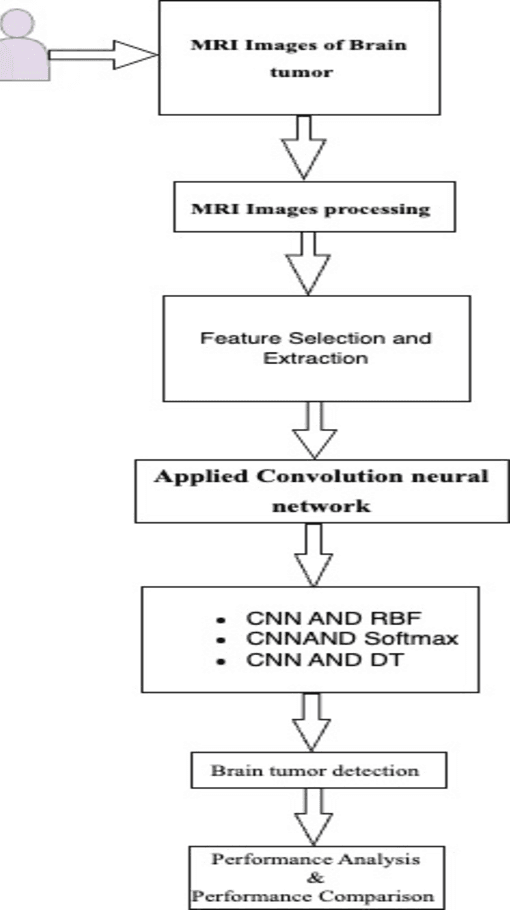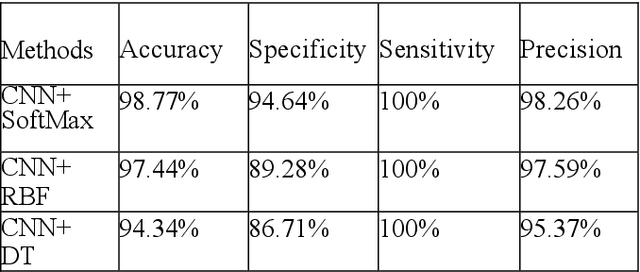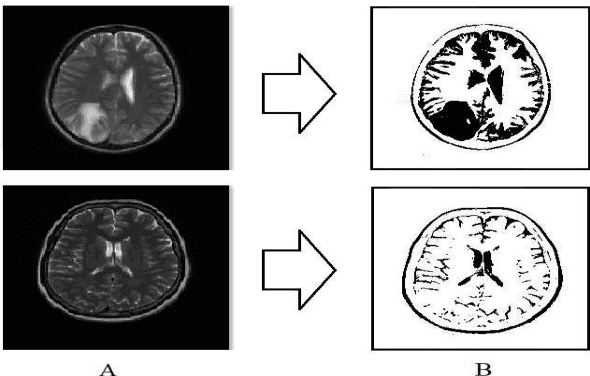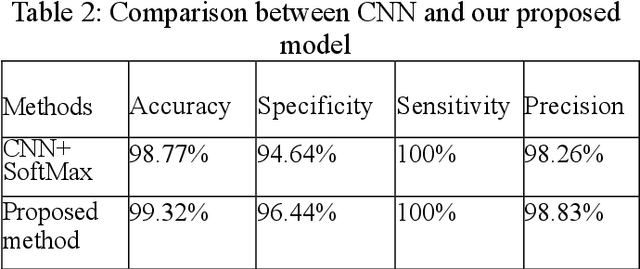Md Sabbirul Haque
Advancing Brain Tumor Detection: A Thorough Investigation of CNNs, Clustering, and SoftMax Classification in the Analysis of MRI Images
Oct 26, 2023



Abstract:Brain tumors pose a significant global health challenge due to their high prevalence and mortality rates across all age groups. Detecting brain tumors at an early stage is crucial for effective treatment and patient outcomes. This study presents a comprehensive investigation into the use of Convolutional Neural Networks (CNNs) for brain tumor detection using Magnetic Resonance Imaging (MRI) images. The dataset, consisting of MRI scans from both healthy individuals and patients with brain tumors, was processed and fed into the CNN architecture. The SoftMax Fully Connected layer was employed to classify the images, achieving an accuracy of 98%. To evaluate the CNN's performance, two other classifiers, Radial Basis Function (RBF) and Decision Tree (DT), were utilized, yielding accuracy rates of 98.24% and 95.64%, respectively. The study also introduced a clustering method for feature extraction, improving CNN's accuracy. Sensitivity, Specificity, and Precision were employed alongside accuracy to comprehensively evaluate the network's performance. Notably, the SoftMax classifier demonstrated the highest accuracy among the categorizers, achieving 99.52% accuracy on test data. The presented research contributes to the growing field of deep learning in medical image analysis. The combination of CNNs and MRI data offers a promising tool for accurately detecting brain tumors, with potential implications for early diagnosis and improved patient care.
Retail Demand Forecasting: A Comparative Study for Multivariate Time Series
Aug 23, 2023Abstract:Accurate demand forecasting in the retail industry is a critical determinant of financial performance and supply chain efficiency. As global markets become increasingly interconnected, businesses are turning towards advanced prediction models to gain a competitive edge. However, existing literature mostly focuses on historical sales data and ignores the vital influence of macroeconomic conditions on consumer spending behavior. In this study, we bridge this gap by enriching time series data of customer demand with macroeconomic variables, such as the Consumer Price Index (CPI), Index of Consumer Sentiment (ICS), and unemployment rates. Leveraging this comprehensive dataset, we develop and compare various regression and machine learning models to predict retail demand accurately.
 Add to Chrome
Add to Chrome Add to Firefox
Add to Firefox Add to Edge
Add to Edge